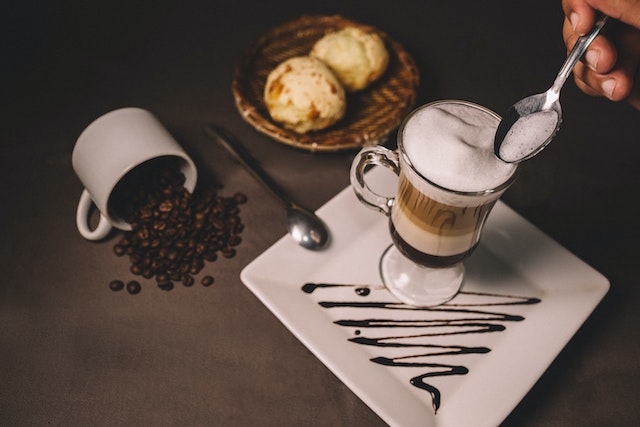Late-night cravings are a common occurrence for many of us, but what we choose to snack on before bedtime can significantly impact our ability to fall asleep and enjoy a peaceful night’s rest. In this article, we’ll explore the snacks you should avoid in the late hours to promote a restful night’s sleep and provide alternative options to satisfy your cravings.
The Relationship Between Late-Night Snacking and Sleep
Late-night snacking has become a nightly ritual for many individuals, often driven by stress, boredom, or simply a habit. However, consuming the wrong foods late at night can lead to various sleep disturbances. Here’s how late-night snacking can affect your sleep:
- Digestive Discomfort: Heavy or spicy foods can lead to digestive discomfort and heartburn, making it difficult to fall asleep comfortably.
- Blood Sugar Spikes: Sugary or high-carb snacks can cause blood sugar levels to spike, followed by a crash. These fluctuations can lead to nighttime awakenings.
Photo by Jonathan Borba: https://www.pexels.com/photo/filled-footed-glass-cup-on-plate-3082790/ - Stimulating Ingredients: Some snacks, such as chocolate or caffeinated beverages, contain stimulating ingredients like caffeine and theobromine, which can make it challenging to relax and fall asleep.
- Increased Alertness: Consuming snacks high in sugar or caffeine can lead to increased alertness and restlessness, disrupting your ability to wind down and prepare for sleep.
- Weight Gain: Frequent late-night snacking can lead to weight gain as the extra calories consumed late in the day may not be burned off before bedtime.
Snacks to Avoid for a Peaceful Night’s Rest
To improve your sleep quality and promote a peaceful night’s rest, it’s important to be mindful of the snacks you choose to indulge in before bedtime. Here are some common snacks to avoid late at night:
- Caffeinated Beverages: Coffee, tea, and energy drinks are obvious culprits due to their caffeine content, which can disrupt sleep.
- Chocolate: While a favorite treat for many, chocolate contains caffeine and theobromine, both of which can stimulate the nervous system.
- Spicy Foods: Spicy dishes can lead to heartburn and indigestion, causing discomfort that can keep you awake.
- Sugary Snacks: High-sugar foods like cookies, candies, and pastries can cause blood sugar spikes and crashes, leading to nighttime awakenings.
- Salty Snacks: Salty snacks like chips or pretzels can lead to dehydration, making you more likely to wake up thirsty during the night.
- Heavy or Greasy Foods: Rich, high-fat snacks like pizza or burgers can be difficult to digest and may cause discomfort.
- Citrus Fruits: Citrus fruits and their acidity can lead to heartburn and acid reflux, which are sleep disruptors.
Satisfying Late-Night Alternatives for a Peaceful Sleep
While avoiding the wrong late-night snacks is essential, satisfying your cravings doesn’t have to be a challenge. Here are some alternative snack options that can help you enjoy a peaceful night’s rest:
- Herbal Tea: Opt for caffeine-free herbal teas like chamomile or valerian root. These teas can have a calming effect and prepare your body for sleep.
- Low-Fat Greek Yogurt: A small serving of low-fat Greek yogurt provides protein, which can help you feel satisfied without overindulging.
- Oatmeal: A small bowl of oatmeal, especially made with warm milk, can be a comforting and sleep-promoting choice. Oats contain complex carbohydrates that help regulate blood sugar levels.
- Almonds: A handful of almonds provides a source of magnesium, which is associated with improved sleep quality. Almonds also contain tryptophan, which can promote sleep.
- Bananas: Bananas are a natural source of tryptophan and also contain magnesium and potassium, which can help relax your muscles.
- Warm Milk: A classic bedtime beverage, warm milk contains tryptophan and is associated with promoting relaxation.
- Whole-Grain Crackers: If you’re in the mood for something crunchy, opt for whole-grain crackers, which provide complex carbohydrates that help regulate blood sugar.
The Importance of Portion Control and Timing
In addition to making the right snack choices, it’s essential to practice portion control and consider the timing of your late-night snack. Aim to consume your snack at least two to three hours before bedtime to allow for digestion. Eating large meals or heavy snacks right before bed can lead to discomfort and disrupted sleep.

In Conclusion
Late-night snacking is a common habit, but what you choose to snack on can significantly impact your sleep quality. Avoid caffeine, heavy, spicy, and sugary foods, and opt for sleep-friendly alternatives like herbal tea, yogurt, or oatmeal. By making informed choices and being mindful of portion sizes and timing, you can satisfy your late-night cravings without compromising your ability to enjoy a peaceful night’s rest. A good night’s sleep is essential for your overall well-being, and making the right snack choices is a crucial step in achieving it.





